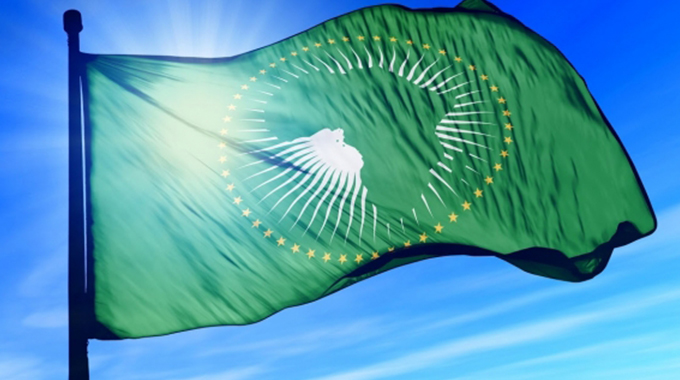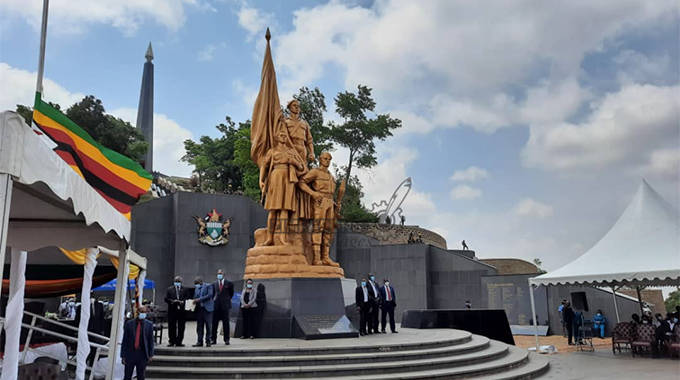LATEST: Digital skills imperative for African women, youth SMEs traders

Business Correspondent
EMBRACING digital technology skills must be a top priority for African women and youth start-up businesses as they navigate the widening export market opportunities within the continent and beyond, says the International Trade Centre (ITC).
With intra-African trade remaining lowest in the world at about 18 percent, compared to intra-European and intra-Asian trade that are hovering around 60 percent, the need to upscale productive efficiencies within the continent, as well as developing adequate export capacity cannot be overemphasised.
African small to medium enterprises (SMEs), who are a dominant economic base in Africa, are seen as a critical potential trade driver but lack relevant skills, financing and adequate market intelligence.
ITC executive director, Pamela Coke-Hamilton, who was among the dignitaries that attended the just-ended Intra-Africa Trade Fair (IATF) 2021 in Durban, South Africa, says the operationalisation of the African Continental Free Trade Area (AfCFTA) in January this year has come in handy, especially for young businesses with a keen focus on digital trading.
She, however, said more needs to be done to capacitate women and youth entrepreneurs with export development skills and market intelligence aspects.
“There are several skills needed, but one of the most important is digital. Going digital is now critical for small firms,” she said in an interview.
“The ability to enter the e-commerce space, the ability to get access to markets, the ability to get market intelligence and being able to access financing, are highly dependent on one’s ability to be online and having access to the internet.
“Even to get these training skills, everything is just online. So, it’s important for SMEs, especially women and the youth, to really build up their capacity to navigate the online presence, to be able to place their products online, to be able to meet all these requirements and to be able to learn new and noble ways of trading.”
As part of efforts to assist African SMEs, the ITC in collaboration with the African Export and Import Bank (AfreximBank) , last week launched a new training programme; “How to export within the AfCFTA”, which is aimed at capacitating small businesses on how to export within the region.
Designed using a problem-solving approach, the initiative uses studies to examine key export concepts in relation to enterprises and the challenges faced in the export field. These include aspects such as export readiness, market research, market development, market access conditions, trade finance and international logistics.
Under the programme, entrepreneurs will benefit from the focus on intra-African export operations and advantages related to intra-regional trade.
The ITC executive director said the programme was already being piloted in three countries; Nigeria, Côte d’Ivoire and Rwanda.
She said through the initiative African SMEs are being equipped to enhance quality standards while a tracking mechanism has been put in place to evaluate progress being made in terms of how SMEs are utilising the provisions of the agreement.
“We have a market intelligence portal and other areas to utilise to track what blockages, what barriers, what has worked and what hasn’t. And then what we hope to do is that we can guide them through so that they can be active,” said Coke-Hamilton.
Although the Covid-19 has crippled global trading in general, the ITC executive director said Africa has exhibited resilience, recording positive gains instead.
“I don’t know if its relative because others are falling and Africa appears to be steady. But the fact is that Africa as a whole has actually been bouncing back much quicker than the rest of the world,” she said. “And the AfCFTA will be one of the mechanisms that will actually enhance that and be able to transform Africa’s economy.
“Intra-Africa trade is one of the lowest in the world. When you look at Europe intra-European trade is over 65 percent, in Asia it’s also over 60 percent and in Africa it’s 18 percent.
“So, there’s a whole bandwidth that needs to be looked at in terms of enhancing trade access across Africa and internally within Africa without even searching for export market from outside.”
The ITC is also running a deliberate programme code-named “She Trades”, which is essentially focused on helping women businesses on how to grow exports.
“One of the things that we are focusing on are the specific barriers to women in terms of trade and this is not specific to the AfCFTA but generally speaking,” said Coke Hamilton.
“Among these is access to finance issues, secondly we have been looking at what markets are available and one of the issues we have found is that the government procurement market has great potential to strengthen and provide access for women on this issue because government procurement is controlled by the government.”
She suggested that for a start, African governments could consider allocating at least 20 percent procurement needs to women saying this will “literally transform how women are able to navigate the economic space” and increase their earnings and that of their immediate communities.
As the AfCFTA implementation continues, Coke-Hamilton has challenged women and youth businesses to integrate their operations at that level and seek to understand more how the regional market works and the potential it presents.
“This is a new era that the AfCFTA can be transformation for Africa. They (SMEs) should engage fully and seek to operationalise their businesses and taking advantage of the agreement,” she said.











Comments